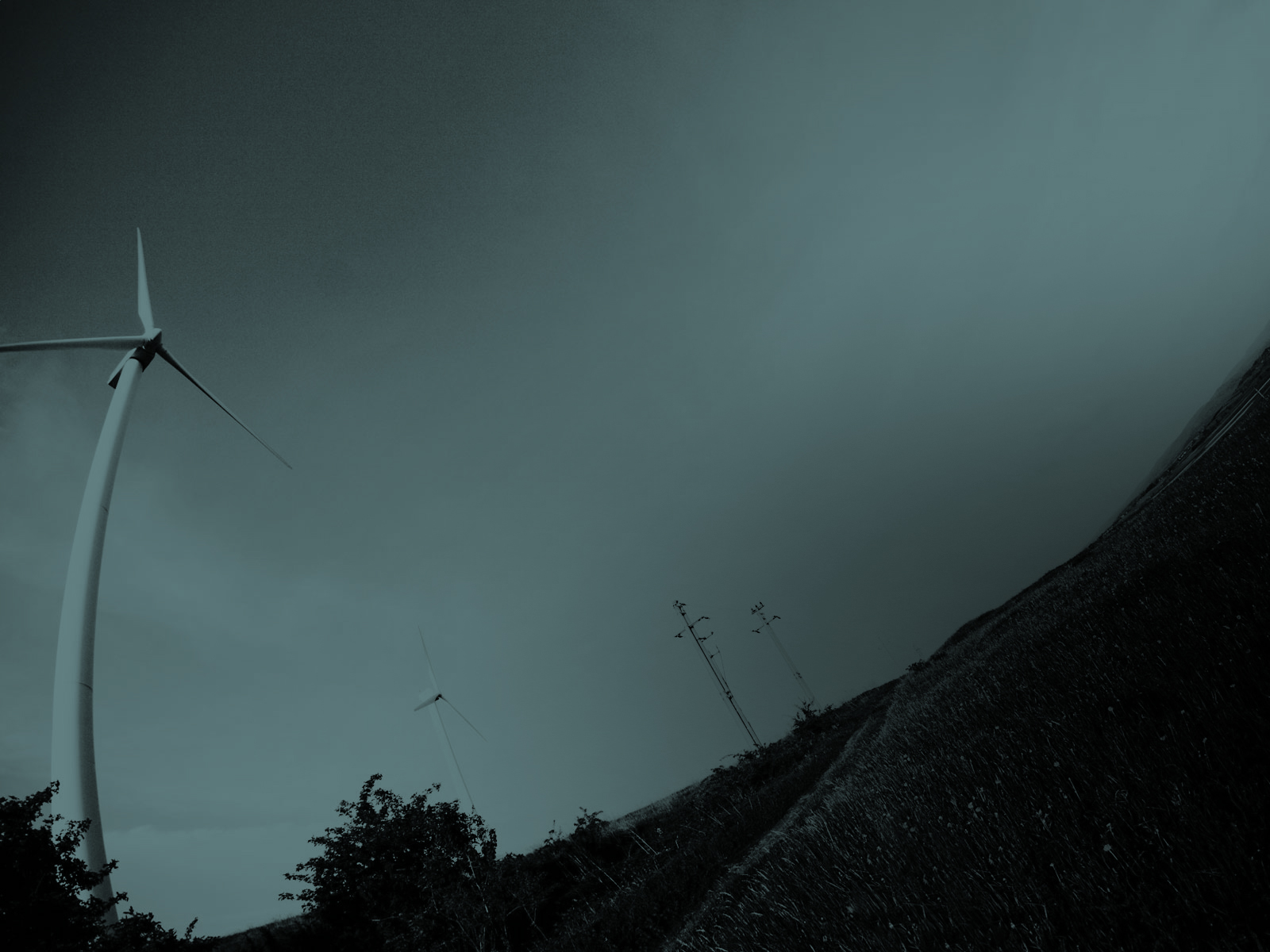Energy independence has been a stated, albeit ill-defined, goal of the United States since the Nixon administration. Recent developments in both the unconventional oil and gas and renewable energy industries have brought this goal closer than it has been in decades.
At 24% in 2015 [1], petroleum imports as a share of total national consumption are at their lowest since 1970 and Henry hub (the US benchmark for natural gas) prices are hovering around $2.8/Mbtu, down from $12 in June 2008. Meanwhile, the costs of utility-scale solar photovoltaic and onshore wind energy have dropped more than 60% and 40% respectively since 2008, and in recent years these sources have accounted for the majority of newly installed generation capacity in the United States.
That this has happened so fast is remarkable. In less than fifteen years, unconventional oil and gas production, mainly using hydraulic fracturing (“fracking”), rose from negligible to supplying around half of domestic production [2] [3].
This growth is a testament to the US economy’s ability to combine technological progress, flexible regulation and financial innovation to develop new opportunities. When, in 2014, OPEC decided to maintain production levels despite an oil-price crash, shale production was projected to stop abruptly. According to data from the Energy Information Agency (EIA), however, oil production continued to grow in the US for another six months, reaching record highs before it peaked. Various factors drove this counterintuitive dynamic.
First, rig efficiency has increased in many of the unconventional oil plays, as a result, in part, of producers focusing on their most productive plays. New-well oil production per rig in the Bakken region, for instance, has doubled since 2014 [4]. Along with a decline in the oil and gas rig count and a large drop in employment in the oil and gas sector, these efficiency gains have cut both labour and equipment costs, lowering the breakeven point. “People are trying to cut costs as much as they can, wherever they can. Even the accounting firms have been asked to halve their fees,” says Peter R. Hartley, an energy economics scholar at Rice University.
Another important lever has been to finance operations through debt. This, however, has reached daunting proportions. Onshore oil producers tracked by EIA, collectively accounting for 2.7m barrels per day of US production, spent 83% of their cash-flow revenues on debt repayments as of June 2015, the highest levels since 2011. Many companies have also engaged in asset write-downs. The 46 international and US upstream oil companies regularly tracked by the EIA, for instance, wrote down $38bn in Q3 2015 alone — the largest write-down since 2008. While no one wants to sell at low valuations, consolidation becomes more likely the longer the oil price remains low.
On the whole, however, the geostrategic energy situation for the United States remains quite positive. As Mr Hartley highlights, “The fact the oil price is down is less a result of investments in America than it is a decision of OPEC to keep the tap open.” However, he notes, “the much greater flexibility of unconventional production — and the large amount of resources available — means the US supply response is now much more elastic. And that reduces OPEC’s monopoly power over oil prices."
These advantages in terms of energy security are even more pronounced for natural gas, a commodity for which a single global price does not exist. Since 2006, lasting spreads have favoured the US Henry hub benchmarks versus the price of natural gas in Europe or Japan. Sustained low prices have created competitive gains for industries relying on natural gas as feedstock, with the petrochemicals industry an obvious long-term winner, although a low oil price also limits the gains from the ethane-naphtha spread. The metals industry should also benefit. Steelmaking in the US, for instance, has seen resurgence in the use of direct reduced iron (DRI), with US DRI output potentially reaching up to 10m tonnes by 2020 from just 1.3m in 2013. Cheap natural gas is also saving consumers money on their heating and electricity bills. According to an evaluation by Harvard Business School, these savings totalled $800 per average US household in 2014. While some of that will be saved, the rest will result in increased consumer spending, thus benefitting the economy.
Energy abundance is an opportunity, not an excuse
One of the most crucial questions facing the US in the future is how newly abundant fossil fuel resources will affect the trajectory of the country’s carbon emissions. Left unchecked, climate change could leave critical parts of the US housing stock and infrastructure exposed to climate-induced sea level rise as well as more frequent and stronger extreme weather events such as hurricanes or droughts. Such events already cost the US tens of billions of dollars a year in damaged property, other economic harms and health consequences. Climate change could also impact the power generation infrastructure due to higher temperatures and reduced water availability, according to the Department of Energy (DOE). “In the absence of concerted action to improve resilience, energy system vulnerabilities pose a threat to America’s national security, energy security, economic wellbeing, and quality of life,” warns a DOE report published in 2015 evaluating the vulnerability of the US energy sector to climate change. It is in the US’s long-term interest to address the climate problem today.
Under the United Nations climate accord agreed to in December 2015, the US has also pledged to take action on climate change. The agreement, signed in Paris by more than 190 countries, recognises the need to achieve “global peaking of greenhouse gas emissions as soon as possible” to keep temperature increases below 2°C by the end of the century. By ratifying the agreement and issuing the Clean Power Plan (CPP), the US’ first policy to explicitly target carbon emissions from the power sector at the national level, the country has taken a step in the right direction. But the US can and should do more.
The need for a clear, coherent and long-term signal
A successful transition requires policy and price signals that are clear, long-term, and strong enough to shift investments towards low-carbon infrastructure. These signals are critical to achieving a low-carbon future for two primary reasons. First, free-market competition requires a level playing field, including a firm price on carbon emissions to account for their negative externalities. Second, for markets to adjust in a non-disruptive manner the price should be gradually more stringent, thus enabling the private sector to shift gradually towards a low-carbon economy.
Until recently, the pattern of US governance in the energy sector had been driven mostly by short-term opportunism rather than a pro-active redesign of the US’s infrastructure base. The production tax credit (PTC) for onshore wind, which provides tax credits per unit of electricity generated for a period of 10 years, had been notoriously hard to predict, for instance, leading to surges in instalments in the quarter preceding possible renewal as companies pushed projects forward in a race to completion prior to the PTC’s expiry. Last-minute policy uncertainty, of course, is not the best way to promote long-term investment in enduring, capital-intensive infrastructure.
The US seems to have learned this lesson. In December 2015, the PTC and the Investment Tax Credit – PTC’s solar equivalent – were both extended for a duration of five years. The impact of this longer-term signal is substantial: the extension is expected to bring an additional 19GW of wind and 18GW of solar online over the next five years respectively, according to analysis by Bloomberg New Energy Finance [5].
As for pricing carbon, the US has limited, regional markets, covering a mere 10% of the country’s total emissions. Although California’s cap-and-trade programme currently boasts the highest price in the US (~13$/tCO2e as of Sept 2016) and is close to the $20/tCO2e the International Energy Agency (IEA) estimates the US will have to apply to its power sector by 2020 to keep its emissions compatible with a 2°C scenario, the current carbon price is still far from the $100/tCO2e the IEA assumes will be needed in the US by 2030.
Despite this suboptimal policy context, the US has done relatively well in reducing emissions cost-effectively. As of 2015, it had the second-largest installed base of non-hydro renewables in the world and was the second largest country in terms of investments, albeit well below those of China, which has been ahead of the US on both accounts since 2011. As for coal, the US has gradually replaced it with renewables and natural gas, with the latter accounting for around 35% of total electricity production in the second quarter of 2016 — up from just 17% in 2001. However, coal’s current displacement is not a result of carbon policies but rather a consequence of low-cost natural gas and regulations aimed at local — not global — pollution.
“Given the current set of regulations in the US to mitigate carbon emissions, it is difficult to say with confidence how effective the combination of these policies is going to be,” says Justin Gundlach, climate-change fellow at the Sabin Center for Climate Change Law at Columbia Law School. The problem of policy coherence is hardly exclusive to America, but it does hinder the US’s ability to realign its energy system to meet the country’s long-term economic and environmental needs.
One positive development in that regard is the CPP. A key feature of the CPP, according to Mr Gundlach, is that it forces states to tackle the issue of policy coherence in a transparent and coordinated way, which facilitates implementation and reduces compliance costs. Another advantage of the CPP is that it opens up the possibility for carbon emissions trading between participating states. Under the proposed plan, currently under review by the U.S. Court of Appeals for the D.C. Circuit, states are allowed to choose between a rate-based goal, set in tCO2e/MWh — effectively a performance standard for carbon intensity— or a mass-based goal, with a cap on total tons of CO2 equivalent. Under the latter option, states would then “readily qualify to trade with affected electricity generating units in states that adopt the same approach”.
Leading by example
Beyond increasing policy coherence, both state and federal governments can open up new markets through public procurement strategies. A clear example of that is the role the public sector has played in expanding the market for energy service companies in the buildings sector — over a fifth of the total floorspace in the US is owned by federal, state, or local governments. Government mandates and purchasing decisions have helped improve energy efficiency through procurement and fostered a broader private-sector market.
Not every state is active in promoting sustainability, however. California has led in energy efficiency initiatives for decades while states like New York or Connecticut have established green investment banks dedicated to promoting clean-energy investments in the state. By contrast, other states such as North Dakota or Wyoming still lack even a mandatory building energy code at the state level. [6]
Another important role for government will be fostering innovation. The government can help expand R&D efforts to help lower the cost of technologies currently in labs. The country’s announced goal to double clean-energy R&D spending, along with 19 other nations leading in clean energy R&D, is an important step in that direction. Should the US reach that objective, clean-energy R&D levels in the US would roughly double from ~$5bn today to some $10bn by 2020.
Complementing this R&D push will be ‘demand pull’ efforts such as policies that create new markets for technologies that are nearing commercialization. California’s 2013 mandate to install 1.3GW of storage by 2020, for instance, has helped utilities diversify their energy-storage technology portfolios while fostering an environment for technologies to compete, from utility-scale solutions to decentralized ones. The reason, says Nancy Pfund, managing partner at DBL Investors, is that “these policies de-risk it for investors, it’s not a pilot to nowhere”. One of the technologies enabled by the mandate, and in which DBL has invested, is Advanced Microgrid Solutions, a startup that managed to secure a 50MW storage contract in 2014 with one of California’s utilities. “That’s unheard of for a start-up company,” notes Pfund.
A critical time for climate action
By explicitly stating the goal of keeping temperature increases “well below 2°C”, the Paris agreement is a clear signal of the international community’s resolve to combat climate change. Current pledges are far from meeting that goal, however, and the agreement emphasises the urgent need to address the significant gap between the countries’ mitigation pledges and the aggregate emission pathways actually necessary to hold the increase in global average temperature well below 2°C. With that in mind, a key element of the Paris agreement is the commitment to review climate pledges every 5 years to increase ambitions based on policy progress and technological developments.
On 5 October 2016, the threshold for operationalization of the Paris Agreement (55 countries representing at least 55% of global emissions) was achieved, meaning the agreement will enter into force on 4 November 2016.
The next five years will thus be crucial for climate action. Acting now will not be free: under existing US policies, including the CPP, some $2.19trn worth of investments will be required over the next 25 years in the US power sector alone, with some 39% going to transmission and distribution (T&D) infrastructure, followed by renewables (37%), fossil-fuel power generation (13%) and nuclear (11%). Acting later will cost even more, as abatement costs and the value of US assets exposed to climate-change risks will rise over time. In such a context, it is of grave concern that new US president Donald Trump rejects the overwhelming scientific evidence of climate change [7] [8].
Low energy prices represent a unique opportunity to reduce carbon emissions. As Mark Brownstein, vice president of the climate and energy program at the Environmental Defense Fund, notes, “The decline in natural gas price is creating economic headroom to ramp up investment in electric transmission and distribution infrastructure with minimal impact on the customer’s total monthly energy bill”. This is because, from an end-user point of view, the increased costs associated with the investment in T&D are offset by the lower costs of electricity generation thanks to cheap natural gas.
How to spend that low gas price dividend matters, says Brownstein. Avoiding lock-in to a carbon-intensive infrastructure will be critical, he notes. In fact, as Mr Gundlach warns, "Integrating means changing the electric system. Natural gas provides an easy way around that in the short-term. It does not, however, constitute a long-term solution to the decarbonisation of the electricity sector.”
Similar considerations apply to the natural-gas distribution side. States will thus have to carefully evaluate the costs and benefits of building new pipelines to feed rising demand from the power sector against those of investing in clean-power generation and demand-side responses to reduce the demand for natural gas in the first place — and thus avoid the need for pipeline investments.
America’s opportunity to shine
The next administration faces a unique responsibility to position the United States on a path towards a low-carbon future. Success will require leveraging the benefits of the switch away from coal while avoiding a permanent lock-in to fossil-fuel-dependent infrastructure. This will be a difficult yet crucial balance to strike. The good news is that, thanks to cheap energy, the US is in a uniquely favourable position to act. Achieving a clean energy transition will not only be good for the US economy, it will also help consolidate US leadership on the international fight against climate change. The Paris agreement on climate change is a clear signal that the world is ready to act on the issue. It’s time for America to rise to the challenge.
_____________________________________________________________
FOOTNOTES:
1 http://www.eia.gov/tools/faqs/faq.cfm?id=32&t=6
2 https://www.eia.gov/tools/faqs/faq.cfm?id=847&t=6
3 https://www.eia.gov/tools/faqs/faq.cfm?id=847&t=6
4 https://www.eia.gov/petroleum/drilling/pdf/dpr-full.pdf #page=3
5 http://www.bbhub.io/bnef/sites/4/2016/04/BNEF-Summit-Keynote-2016.pdf
6 http://database.aceee.org/state/public-building-requirements
[7] http://www.scientificamerican.com/article/trump-picks-top-climate-skepti...
[8] http://fortune.com/2016/10/01/trump-paris-climate-agreement/







